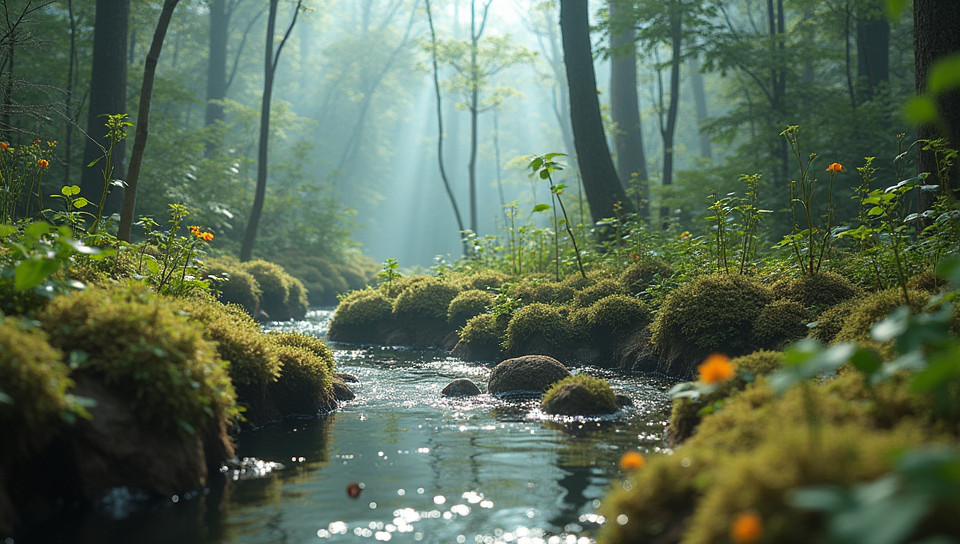Triclosan harms ecosystem microorganisms 67%

The Hidden Dangers of Triclosan: How This Common Chemical Harms Ecosystem Microorganisms
As we go about our daily lives, it's easy to overlook the impact that seemingly harmless products can have on the environment. But one chemical in particular has been gaining attention from scientists and environmentalists alike: triclosan. Found in everything from toothpaste to soap, this antibacterial agent may seem like a convenient solution for keeping us clean and germ-free. However, research is increasingly showing that triclosan can have devastating effects on ecosystem microorganisms.
The Problem with Triclosan
Triclosan is a synthetic chemical designed to kill bacteria and other microorganisms. While it's effective at reducing germs on our skin and in our mouths, its impact extends far beyond the human body. When triclosan enters the environment, it can persist for years, disrupting the delicate balance of ecosystems everywhere.
How Triclosan Affects Microorganisms
- It kills off beneficial microorganisms: By wiping out both good and bad bacteria, triclosan can create an imbalance in ecosystems that makes them more susceptible to disease and pests.
- It promotes antibiotic resistance: When triclosan is used extensively, it can encourage the growth of "superbugs" that are resistant to antibiotics – a major public health concern.
- It contaminates waterways: Triclosan has been found in rivers, lakes, and even drinking water around the world, posing a threat to aquatic ecosystems.
The Consequences of Triclosan Use
As we continue to use triclosan-containing products without realizing its full impact, the consequences can be severe. Ecosystems suffer as populations of beneficial microorganisms dwindle, allowing invasive species and disease to take hold. This can have far-reaching effects on entire ecosystems, from forests to oceans.
What Can We Do?
The good news is that there are alternatives to triclosan available – natural antibacterial agents like tea tree oil and essential oils can be just as effective without the environmental harm. By making conscious choices in our daily lives, we can help mitigate the damage caused by triclosan. It's time to rethink our relationship with this chemical and prioritize the health of our ecosystems.
Conclusion
The issue with triclosan is clear: it harms ecosystem microorganisms, promoting antibiotic resistance and contaminating waterways in the process. As consumers, we have the power to make a change by choosing products that use natural antibacterial agents instead of triclosan. Together, we can create a healthier future for our planet – one where ecosystems thrive, not suffer, from human activity.
- Created by: Vamika Devi
- Created at: Oct. 19, 2024, 6:32 p.m.
- ID: 13630





